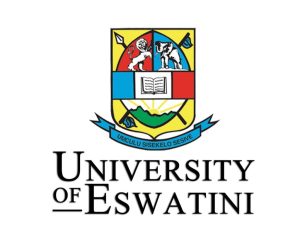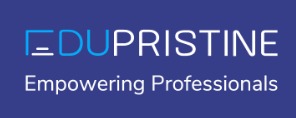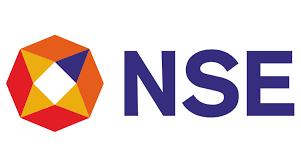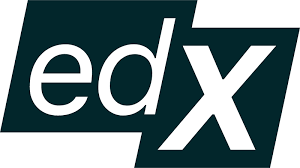Top 10 Financial Modeling Courses In Eswatini With Placements
January 20, 2026|
Varun|
Financial Modeling, Courses|
There has been an increased recognition of financial modeling skills among the professionals and businesses of Eswatini. There is a growing financial sector and a vibrant business environment in the country. Financial modelling is a bedrock for decisions in finance, investment, and strategic planning. It helps to consider the risks, predict trends, and calculate the costs and benefits before an investment. As there is a rise in demand for skilled financial professionals in Eswatini, the field now offers a lot of courses directed at both amateurs and experts. The financial modeling courses in Eswatini provide the necessary training and certification to do well in this competitive field.
What is Financial Modeling?
Financial modeling is the construction of a numerical representation of a business, financial asset or project. It is used to understand financial performance, identify financial risks and aid in decisions based on results.
This entails creating a structured model using fundamental financial ratios, historical data, and assumptions in spreadsheet-like software – Microsoft Excel. These models simulate real-world financial scenarios, allowing businesses and professionals to decide which strategic decisions could produce the best results.
Key Elements of Financial Modeling
1. Historical Data Integration
The starting point of financial modeling is first collecting and putting together the financial data from the previous years. It includes an income statement, balance sheet, and cash flow statement. This information is utilised to make a forecast of future performance.
2. Forecasting Future Outcomes
With assumptions, models include market trends, economic conditions, and company-specific conditions and use these to predict future revenues, expenses and profit. Linear projections, scenario analysis and regression modeling are among the common techniques of forecasting.
3. Valuation Techniques
And usually, financial models assess the value of the company or the project. Intrinsic or market value is very often valued by several valuation methods. This comprises Discounted Cash Flow (DCF), Comparable Company Analysis (CCA), and historical transaction analysis.
4. Sensitivity and Scenario Analysis
Simulation of multiple scenarios is a vital feature of financial models. Sensitivity analysis investigates what happens to an output change if only a slight change occurs in an assumption. At the same time, scenario analysis studies what can happen if some other contingency happens, such as a downturn in the market or economic growth.
5. Decision-Making Support
Finally, financial modeling contributes to decision-making. Once they are developed, these models give a clear view of financial implications leading to making investment choices, pricing strategies, budgeting and allocating resources.
Advantages of Pursuing Financial Modeling in Eswatini
Financial modeling in Eswatini seems to bring some advantages that are relevant to the country’s business environment, innovation and global economic environment. Here’s how professionals and students can benefit from acquiring financial modeling skills in Eswatini:
1. Useful in a Digital Economy
Financial modeling skills are very relevant, given Eswatini’s reputation as a global digital leader. With many startups and companies already established in fintech and e-commerce, skilfully interpreting and forecasting the country’s tech-driven economy requires expertise in financial analysis.
2. International Opportunities
Having strong ties with the European Union and the world markets means working in diversified financial roles have opportunities to find work. Knowledge of financial modeling can make an individual more competitive in the international market by providing universally recognised skills towards attaining a competitive edge.
3. Make Better Decisions in Varying Sectors
The Eswatini economy is progressively focusing on real estate and renewable energy. A financial model enables resource optimisation, forecasting and scenario analysis. This enhances professionals’ ability to make the right decisions to generate growth and profitability.
4. Startup Ecosystem
In Eswatini’s startup paradise, financial modeling is invaluable for entrepreneurs. It helps founders prepare impressive business plans, introduces them to the world of venture capital funding and helps them manage cash flow so their businesses can sustain in hyper-competitive markets.
5. Digital Tools Integration
Financial Modeling courses with emphasis on e-government and digital transformation cater to the use of more complex tools such as Python, R and cloud-based software.
6. Boosting Employability
Financial modeling has a high demand for professionals skilled in the areas of banking, consulting, and corporate finance. They can significantly help in developing job prospects for financial analysts, investment bankers and strategic consultants.
7. Globalized Economy
Financial modeling enables professionals in Eswatini to conduct international investment analysis, deal with currency risks and appraise cross-border mergers and acquisitions. This provides a big advantage for companies and people who are in global trade and finance.
8. Entrepreneurial Growth and Resource Allocation
Financial modeling is useful for entrepreneurs and small business owners to make key decisions like pricing, budgeting, and resource allocation and thus sustain growth in Eswatini’s competitive business ecosystem.
Benefits of Pursuing Financial Modeling Courses in Eswatini
| Benefits | Provide By The Courses | Description |
| Decision-Making Skills | ✅ | Learn to create models that support informed business and financial decisions. |
| Career Advancement Opportunities | ✅ | Gain specialised skills valued in finance, investment, and corporate sectors. |
| Hands-On Technical Expertise | ✅ | Acquire proficiency in tools like Excel, Python, and other modeling software. |
| Global Career Prospects | ✅ | Certification in financial modeling opens opportunities in international markets. |
| Practical Application | ✅ | Apply theoretical concepts to real-world financial scenarios for better problem-solving. |
| Certifications | ✅ | Certificates that are recognised by the government and the industry are provided. |
| Networking Opportunities | ✅ | Connect with industry experts and peers through workshops and collaborative projects. |
| Internships | ✅ | Increase your knowledge and abilities with mentorship and projects. |
Applications of Financial Modeling
Financial modeling is a critical tool throughout industries and professional domains. It provides actionable insights to assist in making meaningful decisions and guiding strategy development.
1. Management of Financial in the Corporations
Corporate finance is not complete without financial modeling. It is used to budget and forecast, as well as for financial analysis. To estimate future revenues, expenses, and profits, organisations use models and align their strategies with financial goals.
Cost structures are evaluated, resource allocation is optimised, and capital is well managed. For instance, financial modeling is used by a company to determine whether or not to enter a new market or to invest in product development.
2. Investment Banking and Valuation
Financial models are an important part of investment banking, and they are used to evaluate mergers, investments and public offerings. They aid bankers in deciding the value of a company using Discounted Cash Flow (DCF) analysis, Comparable Company Analysis (CCA), and precedent transaction analysis.
It provides financial professionals with models that aid in assessing the financial viability of deals and negotiating terms, under which the ultimate advice sought by their clients can be provided.
3. Startups and Entrepreneurship
Financial modeling is relied on financially by entrepreneurs to develop a business plan, negotiate to fund, and project profitability. Insights into cash flow, breakeven points and scalability are given by the models.
For example, a startup looking to raise venture capital might create a financial model to explain its earning potential, showing investors a greater depth of financial projections and the cost structures involved.
4. Venture Capital and Private Equity
Private equity and Venture capital investments are evaluated with the use of financial modeling. Models are used by firms to analyse portfolio companies, predict returns and evaluate exit strategies. Investors can use models to take risks and decide on equity stakes or long-term investments.
5. Infrastructure development and Project Finance
In many ways, financial modeling is crucial to evaluating the feasibility and sustainability of large-scale infrastructure projects. Whatever the renewable energy or transportation project, the financial models look at costs, income potential and financing requirements. Stakeholders use them to define risks and put forth strategies to manage financial uncertainties.
6. Stock Market Analysis and Trading.
Models are used by financial analysts and traders to evaluate the performance of a stock, predict the movement in the price and identify profitable trading opportunities.
The statistical quantitative models are ideally based on market trends, historical data, and economic indicators. These are used for technical analysis and portfolio optimisation.
Businesses use models in order to forecast risks, including currency fluctuations, interest rate changes, and market volatility. Through sensitivity and scenario analysis, organisations can economically prepare for the best, worst and base-case scenarios.
8. Property Development and Real Estate
Financial models on real estate have been widely used to assess the profitability of real estate investments and development projects. They determine returns and value cash flows and decide what actions to take with regard to financing options.
For example, a real estate developer might use a financial model to predict how the financial outcomes of building a commercial property would change.
9. Public Sector and Non-Profit Planning
Financial modeling gets applied to non-profits and government agencies, too, to manage budgets, allocate resources, plan for initiatives, etc. In fact, an example of how a financial model can be used is for a non-profit organisation to work out the cost-effectiveness of a new program or the financial impact of a grant.
10. Educational and Training Contexts
Financial modeling is included in the curriculum of academic institutions and training organisations to equip students to face real-world challenges. Learning financial modeling gets you good critical thinking skills and problem-solving skills you can use in many different industries.
Now let’s take a look at the top 10 financial modeling institutes in Eswatini.
List of Top 10 Financial Modeling Courses in Eswatini
| Institutes | Mode | Module Specific Trainers | Mock Interview |
| IIM SKILLS | Online | ✅ | ✅ |
| University of Eswatini | Offline | ✅ | ❌ |
| Coursera | Online | ❌ | ❌ |
| EduPristine | Online | ✅ | ✅ |
| LinkedIn Learning | Online | ❌ | ❌ |
| Udemy | Online | ✅ | ❌ |
| Financial Edge | Online | ✅ | ❌ |
| The National Stock Exchange (NSE) | Online | ✅ | ❌ |
| EDX | Online | ✅ | ✅ |
| Wall Street Prep | Online | ❌ | ❌ |
1. IIM SKILLS:
Financial modeling courses in Eswatini provided by IIM SKILLS are globally renowned. It is an online education platform with courses covering theory and practical knowledge. This course covers all of the fundamentals you need to know.

The course curriculum covers everything from building financial statements to advanced Excel techniques, as well as valuation methods like DCF and sensitivity analysis.
Also, a part of this program is real-world case studies and projects so that learners can put their skills to practice in real-life financial situations. It also includes live interactive sessions to address the queries related to their doubts directly to instructors.
Access to recorded classes is provided, and the course is very flexible. Their financial modeling institutes in Eswatini are recognised globally. They also provide certifications to make learners ready for roles in investment banking, corporate finance and financial planning.
| Course | Duration | Fees |
| Financial Modeling Master Course: Self-Paced Course | Self-paced | 7490.68 SZL |
| Financial Modeling Master Course: Job Assist Program | 4 months | 12501.17 SZL |
| Financial Modeling Master Course: Job Guarantee Program | 4 months | 37553.62 SZL |

Contact Information:
| Phone | +91 9580740740 |
| [email protected] | |
| Website | iimskills.com |
Looking for a top-ranked Financial Modeling Courses in Andorra. Read and explore in-depth.
2. University of Eswatini

Financial Modeling is considered to be a part of the University of Eswatini Financial Management and Economics curriculum. This academic approach is equally balanced in theoretical concepts and practical applications of a specialized branch of financial analysis and decision-making.
The students are taught to construct models to budget, forecast, and evaluate prospective investment opportunities. The emphasis in their financial modeling courses in Eswatini is on local economic influences and it teaches students to analyze financial data with a local Eswatini economic perspective.
Learners have access to expert faculty and institutional resources that prepare them to contribute to the regional financial sector.
| Course | Duration | Fees |
| Finance Degree | 2 years | Not Available |
Read and explore the reputed Financial Modeling Courses in Dubai ends here. Do check them out.
3. Coursera

Wharton and the University of Illinois are two top universities you can find offering their courses on financial modeling on Coursera. Their financial modeling courses in Eswatini are suitable for all levels of learners, from beginners to advanced professionals.
The topics taken up in the curriculum include Excel-based modeling, risk analysis, and financial forecasting. Due to its self-paced nature, it remains a very popular choice for working professionals.
In addition to these many programs also include hands-on projects so that participants can actually build financial models relevant to real-life issues.
After completing the course, learners get certified globally which is a plus for professional credibility. It is one of the best financial modeling institutes in Eswatini.
| Course | Duration | Fees |
| Business and Financial Modeling | Self-paced | SZL 1083/month |
| Finance and Quantitative Modeling for Analysts | Self-paced | SZL 1083/ month |
We recommend reading the best Financial Modeling Courses in Albania.

4. EduPristine

The financial modeling courses in Eswatini by EduPristine are for professionals who aim to gain skills in investment banking, equity research or corporate finance. It’s largely a hands-on course that teaches you how to build detailed financial models and how to evaluate investment opportunities.
Modules of financial statement analysis, valuation techniques, and industry-specific modeling form the curriculum. Classroom training, online resources and personalized mentoring are all provided to participants, providing a full course offering.
Placement support from EduPristine makes it an attractive option for people looking forward to a career jump. This makes it among the best financial modeling institutes in Eswatini.
| Course | Duration | Fees |
| The Financial Modeling Course | 100 Hours | Not Available |
Look at these Financial Modeling Courses in Croatia to master the in-demand skills.
5. LinkedIn Learning
![]()
Short financial modeling courses in Eswatini are available on LinkedIn Learning. Beginners or professionals with some skills who want to improve their skills related to financial forensics, ratio analysis, and valuation techniques can benefit from these courses.
Key features include the facility to learn on your own time, with access to a library of video tutorials from industry experts. Additional supplementary resources, including downloadable templates and practice exercises, are available to learners. Integrating with LinkedIn makes it simple to put your certifications on so potential employers can see them.
| Course | Duration | Fees |
| Financial Modeling and Forecasting Financial Statements | Self-Paced | SZL 541/ Month |
We recommend reading our top Financial Modeling Courses in Canada for career guidance.
6. Udemy
![]()
Financial modeling courses in Eswatini offered on Udemy come in a huge variety, from beginner-level introductions to advanced modeling techniques. The courses are designed for beginners, and are all based on Excel-based modeling, and the advanced routes involve mergers, acquisitions and private equity modeling.
In addition to lifetime access to course materials, participants benefit from being able to revisit concepts as often as necessary. Additionally, the platform has affordable pricing and frequent discounts. Using real-life examples they help the learners learn practical and job-ready skills.
Explore the well-recognised Financial Modeling Courses in Djibouti for career guidance.

7. Financial Edge

Investment banking professionals are provided with financial modeling courses in Eswatini by Financial Edge. Individuals interested in acquiring expertise in subjects such as mergers and acquisitions, equity research, or corporate strategy will find this program very helpful.
Advanced Excel techniques and valuation methods are taught and participants are given the chance to master complex financial models. The training, delivered by industry practitioners, contains case studies simulating real-world challenges.
Learners are given an opportunity to add to their credibility when it comes to the world of finance, which is usually a very competitive industry. This makes Financial Edge among the best financial modeling institutes in Eswatini.
| Course | Duration | Fees |
| Financial Modeling and Valuation | Self-paced | SZL 2980 |
Check out the list of top Financial Modeling Courses in Congo with placement support!
8. The National Stock Exchange (NSE)

The NSE’s financial modeling courses in Eswatini are designed to help learners comfortably navigate through the capital markets and assess investment opportunities. Topics include financial statement analysis, ratio analysis and valuation methods.
This enables participants to gain some hands-on with industry-standard tools and techniques to bring robust models for budgeting, forecasting, and decision-making. The course is targeted at those who are interested in careers in investment banking, equity research or financial advisory services.
| Course | Duration | Fees |
| Financial Modeling and Valuation | 10 hours | Not Available |
Explore to find out the top Financial Modeling Courses in El Salvador for your career enhancement.
9. EDX

EDX works with industry-leading institutions like Harvard and Wharton to provide professional-grade financial modeling courses in Eswatini. Both fundamental and basic level topics concerning financial forecasting, valuation techniques and automation with VBA are explored in these courses.
The stand out is technology-driven modeling using tools such as Python and R to improve efficiency and accuracy. Participants earn globally recognized certification making this an excellent addition to anyone’s finance resume. It is among the best financial modeling institutes in Eswatini.
| Course | Duration | Fees |
| Financial Modeling and Analysis | 4 weeks | Free |
| Commercial Property Contracts and Financial Modeling | 4 weeks | Free |
| Introduction to Cash Flow: Modeling and Forecasting | 8 weeks | SZL 2709 |

10. Wall Street Prep

The financial modeling courses in Eswatini by Wall Street Prep are an intensive program for finance professionals. Within it are advanced Excel techniques, valuation methods, and industry-specific modeling.
This course has hands-on experience and participants build detailed financial models from scratch. Sets of real-world case studies are presented that offer practical insights into investment banking and corporate finance scenarios. Considering its reputation for excellence, it has become a popular choice for professionals looking for high-level training.
| Course | Duration | Fees |
| Financial and Valuation Modeling Certification Program | 46 Hours | SZL 8878 |
Frequently Asked Questions
1. What are the requirements for enrollment in financial modeling courses in Eswatini?
Most financial modeling courses, assume students to already know some basic accounting and finance skills. Along with familiarity with Microsoft Excel and some experience in financial analysis. But beginner-level courses do not have these prerequisites so the courses are available to students, graduates and professionals from non-finance backgrounds. There are plenty of institutes like IIM SKILLS and Udemy that offer beginner-friendly modules.
2. How much time does it take for the financial modeling course completion?
The duration of financial modeling courses in Eswatini depends upon the institute and the program. Online learning short courses, such as the ones offered through LinkedIn Learning or Udemy, can take one or two weeks to complete. More comprehensive programs, like those from IIM SKILLS, take 4 months to complete.
3. Are financial modeling courses in Eswatini recognized internationally?
Yes, many financial modeling institutes in Eswatini are recognized worldwide like Coursera, EDX and Wall Street Prep. Reputed institutions such as IIM SKILLS have similar importance in the global job market and can greatly aid careers in finance, investment banking or corporate strategy roles.
4. What software is taught during financial modeling courses in Eswatini?
Financial modeling courses will teach students from the basics to proficiency with Microsoft Excel, which is crucial for creating and analyzing financial models. There are also advanced courses that include tools such as Python, R, or VBA (Visual Basic for Applications) to help automate processes and increase analytical powers. Financial modeling institutes in Eswatini provide professional certificates and focus on integrating technology-driven approaches.
5. What value does a financial model add to professionals?
Financial modeling gives professionals the power to make accurate financial plans, evaluate investment opportunities, and make data-driven decisions. This skill set is highly important for industries like banking, agriculture and emerging businesses in Eswatini. One way financial professionals can contribute is through mastering financial modeling and as a result, strategic decision-making, risk assessment and growth in the region’s economy.
Conclusion
Financial modeling courses in Eswatini are essential in designing a new generation of financial experts. With these courses, they will be able to navigate through the competitive business world. Not only do these courses provide an excellent strong foundation in financial analysis and forecasting, but students also gain advanced technical knowledge. Along with this they also get global certifications that enable them to land international jobs. Investment in these programs provides the economic opportunity for Eswatini’s professionals and businesses to make informed decisions and promote the nation’s economic growth.

Varun
Are financial bottlenecks holding your business back? Here's how I can help you: With rich experience in advanced financial modeling and transaction support......

